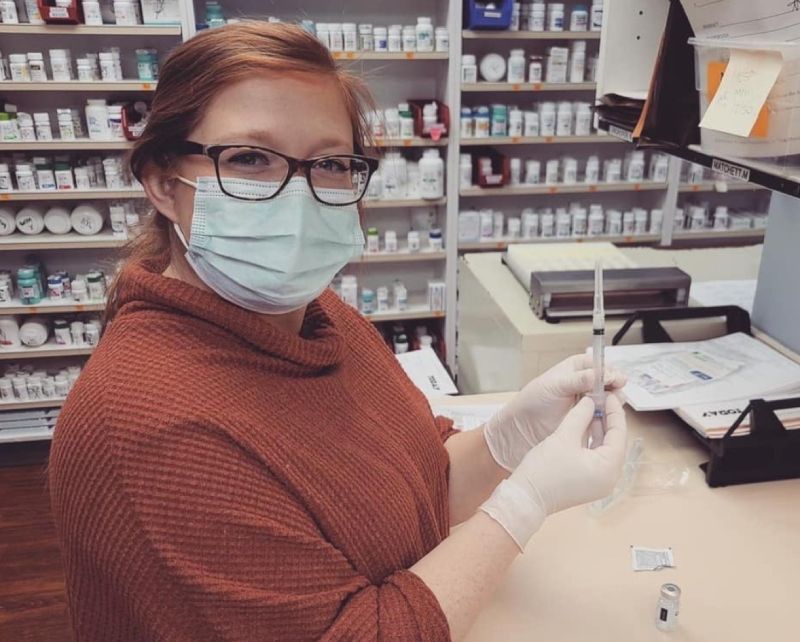Partnering With Universities to Bring Online Allied Health Training to a Broader Audience
In the healthcare industry, the demand for skilled professionals is high. And when it comes to preparing the next generation of healthcare professionals, universities are at the forefront. However, expanding traditional training programs to meet the growing demand often comes with challenges. That’s where online allied health training comes in — a solution that enables universities to grow their offerings without the additional need for infrastructure and educators, while also opening up more learning opportunities for students from all walks of life.
Through strategic partnerships with organizations like Advanced eClinical Training (ACT), universities can offer flexible, high-quality healthcare training that meets the needs of students and the industry at large. These programs not only provide accessible pathways for students to start or advance their careers but also enable institutions to stay ahead during a time when enrollment remains competitive.
About Our University Partnerships
Universities are increasingly collaborating with Advanced eClinical Training (ACT) to integrate online certification programs into their curricula, creating mutually beneficial partnerships that address key institutional challenges such as enrollment, retention, and program differentiation. These partnerships come in several forms, tailored to meet the unique needs of each university:
- Transfer Agreements: ACT facilitates seamless credit transfers between institutions, allowing students to apply ACT certification courses towards their degree requirements. This ensures students gain practical, job-ready skills while advancing their academic progress.
- Dual Enrollment Programs: ACT offers dual enrollment opportunities, enabling students to earn certifications that count towards both high school and college credits. These programs support early career exploration and help attract ambitious pre-health and pre-med students.
- Degree Completion Programs: ACT collaborates with universities to create pathways for degree completion by offering credits for certification courses. Students transferring from community colleges can leverage these programs to transition into four-year degrees while acquiring marketable skills.
- Curriculum Licensing: ACT licenses its robust online curricula to universities, providing a cost-effective solution for institutions seeking to expand their course offerings without the need for internal course development. This plug-and-play model ensures a seamless integration with existing academic structures.
- Simulation Software Licensing: To enhance experiential learning, ACT offers specialized simulation software for training pre-health and healthcare students. This innovative approach enriches curricula with practical, hands-on experiences.
- Educational Modules: ACT provides modular educational units that universities can incorporate into their existing programs, addressing specific skill gaps and aligning with the institution’s academic goals.
Overcoming Challenges Through Partnership
ACT’s online allied health training programs are well equipped to address the unique needs of universities, helping them enhance their healthcare education offerings and attract diverse student populations. By forming targeted partnerships with both large state schools and online universities, ACT provides tailored solutions to tackle enrollment, retention, and branding challenges.
Large State Schools
For universities with established pre-health programs, staying competitive as a top-tier institution requires innovative strategies. Retaining students throughout their academic careers and increasing program loyalty are critical priorities.
At ACT, we offer customizable options like whitelabeling or licensing our course content through a revenue sharing model, making it possible for universities to seamlessly integrate our programs under their own branding. For example, highly sought-after programs such as the Certified Medical Assistant (CCMA) course not only serves as a “plug-and-play” solution, eliminating the need for costly internal course development, but also attracts top-tier pre-health talent by providing an alternative career-ready pathway.
Online Universities
Online academic institutions face unique challenges, such as decreased enrollment rates and difficulties attracting and retaining students transitioning from community colleges. For many of these students, financial barriers or the need for immediate employment hinder their ability to complete degrees.
ACT provides pathways for community college transfers by offering credit for prior learning through our certifications. Our programs can also be marketed as on-demand skills training, enabling students to start healthcare careers while continuing their education.
The Benefits of Online Training Courses for Universities
The rise of online education has transformed how universities deliver learning experiences, particularly in skilled fields like allied health. Partnering with online training providers offers universities numerous benefits, including:
Diversified Health Program Offerings
Since these programs already have established, proven curricula and independent instructors, online allied health courses allow universities to expand their curriculum without the need to invest in new faculty or physical resources. By offering programs in a wide range of concentrations, such as phlebotomy, pharmacy technician training, clinical medical assisting, and more, universities can respond to the healthcare sector’s growing demand for skilled professionals and better prepare students for diverse careers in medicine.
The Ability to Scale Without Expanding Infrastructure
Traditionally, growing healthcare programs requires significant investments in lab space, classrooms, and other clinical training facilities. Offering online courses instead enables universities to circumvent these infrastructure challenges. Without the need for expansion, institutions can scale their programs to accommodate more students while keeping costs manageable, ensuring a sustainable model for long-term growth.
Opportunities to Reach a Wider Student Audience
Online programs are inherently more accessible, making it possible to attract a broader student demographic. Working professionals and others with non-traditional schedules can now pursue healthcare education without compromising their existing commitments. This inclusivity not only increases enrollment but also enriches a university’s community by bringing in students with diverse backgrounds and experiences.
The Benefits of Online Training Courses for University Students
For students aspiring to enter allied health professions, online training courses come with advantages that fit their needs.
Flexibility & Self-Paced Learning
Online training programs make it possible for students to fit their education into their existing schedules. This flexibility is especially valuable for working adults, parents, or individuals with unconventional routines. Additionally, many online courses are self-paced, enabling students to spend more time on the topics they find challenging while moving quickly through the subject areas they grasp more easily.
Increased Accessibility
Traditional in-person programs often limit students to local options, but online training courses eliminate geographic barriers. Students can enroll in high-quality allied health programs regardless of where they live, even accessing their courses from the comfort of their own homes.
Time Savings
Eliminating the need to commute to a campus saves students valuable time (and reduces associated travel expenses, such as gas, parking, or public transportation fare). This convenience makes it possible for students to focus more energy on their studies and other priorities.
Opportunities to Make Connections
Online programs present unique opportunities for students to interact with classmates and instructors through virtual platforms. For example, discussion boards and live webinars foster collaboration and create a supportive learning community, even in a remote setting.
Externship Opportunities for Real-World Experience
Many online allied health training programs offer opportunities for externship placements, providing hands-on experience in students’ chosen fields. These practical experiences provide a bridge between academic and experiential learning, preparing students for successful careers in healthcare.
Focused Certification Exam Preparation
Online training courses often include targeted resources and support for certification exams, ensuring students are well-prepared for test day. With access to practice tests, study guides, and expert advice, students can confidently navigate the certification process.
Career Training With ACT
At Advanced eClinical Training, we offer online healthcare certification courses that provide these benefits. When partnering with ACT to introduce allied healthcare training programs to course catalogs, universities can extend the following to their students:
A Pathway for Career Switchers
ACT’s training programs are ideal for anyone considering a career change to pursue a future in healthcare. With the ability to study at their own pace while working a full-time job, individuals can acquire the necessary skills and credentials without deprioritizing their current commitments — making healthcare training accessible for those who may have thought a career change was out of reach.
Preparation for Further Medical Education
Students with future plans to enter nursing, medical, or physician assistant (PA) school often need relevant experience to strengthen their applications. ACT courses provide hands-on training through externships and certifications that demonstrate a commitment to healthcare, giving students a competitive edge during the application process.
A Fast Track to Healthcare Careers
For students eager to begin working in the healthcare field quickly, ACT programs offer a direct path to employment. Certifications in areas like medical assisting or patient care open doors to fulfilling roles in hospitals, clinics, and countless other healthcare settings, often within just a few months (or even weeks) of starting the program.
ACT Courses
ACT delivers a range of courses tailored to some of the most in-demand roles in healthcare:
- Certified Clinical Medical Assistant (CCMA): Equips students with the skills needed to support physicians, manage patient care, and handle administrative tasks in clinical environments
- Certified Patient Care Technician (CPCT): Prepares students to provide essential care to patients, including basic nursing tasks and monitoring vital signs
- Certified Pharmacy Technician (CPhT): Focuses on training students to assist pharmacists with preparing medications and managing prescriptions in retail and hospital settings
- Certified Physical Therapy Technician (PTTC): Trains students to support physical therapists as they help patients recover from injuries and improve mobility
See What Our Certification Courses Can Do for You
Partnering with ACT to offer online allied health training is a win-win for both universities and students. Institutions can expand their healthcare programs without overextending resources, while students gain access to flexible, career-focused education that sets them up for success in their future careers.
If your university is ready to explore the possibilities of a partnership with Advanced eClinical Training, or if you’re a pre-health student seeking additional training to strengthen your applications, we’d love to hear from you. Get in touch with us to learn more about how our programs can make a difference in advancing healthcare education. Or enroll today if you’re ready to take your first step toward a career in medicine.


